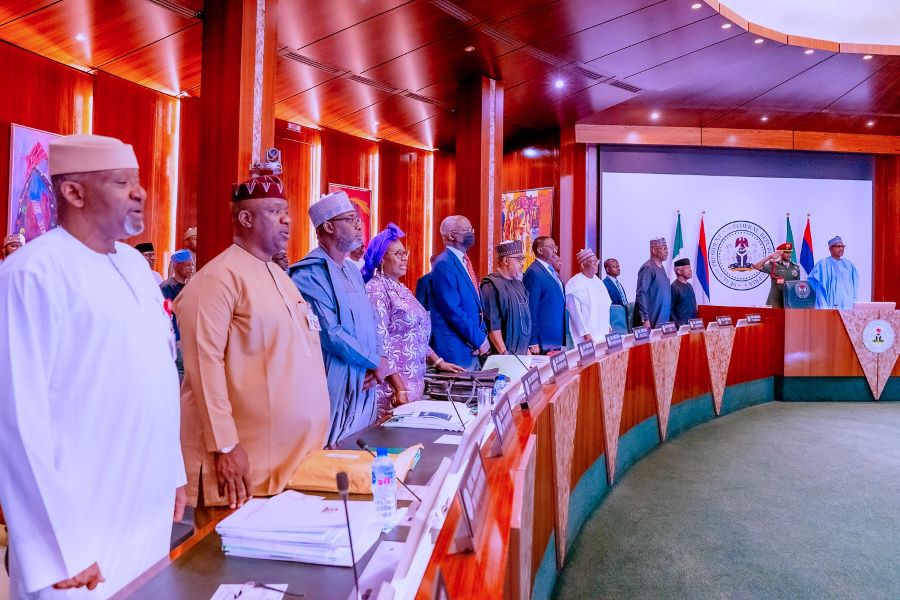New and existing Start-Ups in Nigeria got new assurances on tax breaks and access to funding on Wednesday when President Muhammadu Buhari inaugurated the National Council for Digital Innovation and Entrepreneurship.
The 14-member council is mandated to guide the implementation of the Nigeria Startup Act (NSA) 2022 which provides incentives and support for start-ups, including tax breaks and access to funding.
The Council headed by the president has other members including the Vice-President who is the Vice Chairman; the Minister of Communications and Digital Economy, who will preside over the Council in the absence of the President and Vice President; the Minister responsible for Finance, Budget, and National Planning; the Minister responsible for Industry, Trade, and Investment; the Minister responsible for Science, Technology and Innovation and the Governor of the Central Bank of Nigeria.
Others are four representatives of the Start-up Consultative Forum, one representative of the Nigeria Computer Society, one representative of the Computer Professionals (Registration Council of Nigeria) and the Director-General, NITDA, who will serve as Secretary of the Council
Nigeria aims to become a global talent factory through the implementation of the Startup Act 2022, but access to funding, support infrastructure, and skilled talent has remained the major barriers to the growth of the ecosystem, particularly for early-stage start-ups.
Hence the government sees the provisions of the Nigeria Startup Act 2022 as an important step to address these challenges and promote the growth of a more vibrant and inclusive startup ecosystem in Nigeria
Speaking at the inauguration of the Council chaired by him, the President directed the Secretariat, the National Information Technology Development Agency (NITDA), to ensure faithful implementation of the Act to further promotes the remarkable growth of startups in Africa, which Nigerian start-ups have blazed the trail, raising over US$4 billion between 2019 and 2022.
‘‘It is worth noting the remarkable growth of start-ups worldwide, with over US$400 Billion of venture funding accessed in 2022.
‘‘This growth was fuelled by a surge in demand for digital services as people worldwide turned to technology to stay connected, work remotely, and access essential goods and services largely due to the COVID-19 pandemic.
‘‘In Africa, the startup ecosystem has also been growing at a remarkable pace.
‘‘In 2022, African startups raised a record of US$5.4 Billion in funding,’’ he said.
President Buhari, therefore, charged members of the Council to harness the potential of Nigeria’s young and innovative population, who have demonstrated their ingenuity, creativity, and entrepreneurial spirit in creating innovative solutions to the challenges of the nation and the continent.
‘‘With this inauguration, which serves as our first meeting, I hereby direct the Minister of Communications and Digital Economy, Professor Isa Ali Ibrahim (Pantami), to convene another meeting of the Council in May 2023 to make further progress on the implementation of the Act.
The Startup Act 2022 which is seen as government’s commitment to harness the potential of Nigeria’s young and innovative population, was developed in collaboration with his office, the Federal Ministry of Communications and Digital Economy, with the support of the Tech Ecosystem.
The Act, which became law after its approval by the Federal Executive Council on 15th December 2021 and the Presidential assent on 19th October 2022, provides incentives and support for start-ups, such as tax breaks, access to funding, ease of doing business, intellectual property protection, and participation in public procurement.
Minister for Communications and Digital Economy, Ibrahim Ali-Pantami noted that digital innovation and digital entrepreneurship are prerequisites to building an indigenous digital economy, assuring that the Council would consolidate the gains and achievements recorded in the digital economy sector.
He started the three unprecedented records of ICT contributions to GDP, stating that ICT alone contributed 14.07 percent to the country’s GDP in the first quarter of 2020.
‘‘In the second quarter of 2021, ICT alone, without digital services, contributed 17.92 per cent to GDP while in the second quarter of 2022, ICT contributed 18.44 per cent.



Comments are closed.